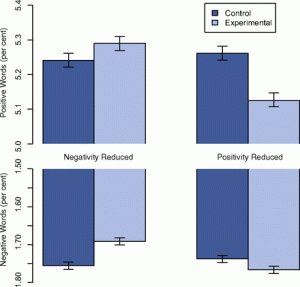DENVER — Facebook recently revealed it carried out a week-long experiment on nearly 700,000 users to test the effects of positive and negative posts, according to a paper published by the PNAS journal.
The January 2012 experiment involved 689,003 users of the English version of Facebook. The experiment was designed to determine “whether exposure to emotions led people to change their own posting behaviors,” wrote a team of Facebook scientists.
Actual posts were not affected and could still be viewed from friends’ profiles. The experiment only changed what selected users saw in their own News Feed, which is governed by a Facebook algorithm.
According to the study, there was one track for those receiving positive posts, and another for those who were exposed to more negative content. The results of the experiment indicate that emotion — whether good or bad — in social media posts seems to be contagious.

Subjects who saw positive content appeared to be more positive and less negative in their online activity. The reverse was also true — people tested with negative postings became more negative.
“The short version is, Facebook has the ability to make you feel good or bad, just by tweaking what shows up in your news feed,” Forbes reported.
While users may not have been aware they were part of the experiment, this sort of test is allowed under the terms and conditions all Facebook users must agree to. Those conditions include “internal operations, including troubleshooting, data analysis, testing, research and service improvement.”